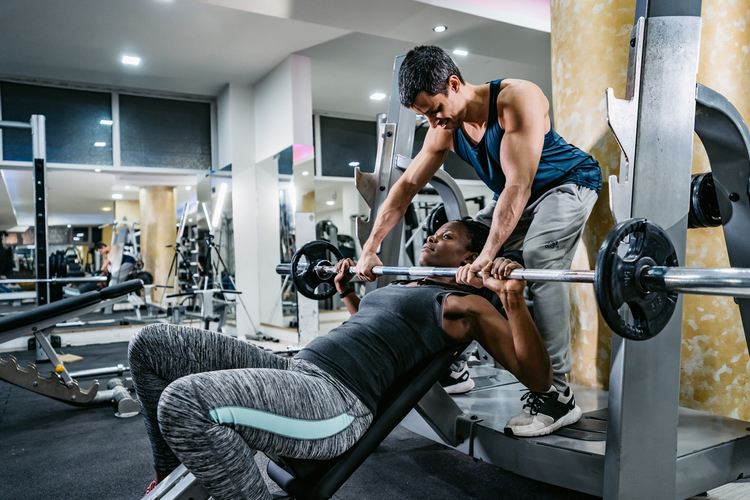The Kurt Weber Story
EDITORS NOTE: Kurt Weber is a Strength Coach at Cal Fullerton and private trainer, certified by NSCA-CSCS and USAW. You can find him at weberstrength.com and twitter.com/weberstrength.
Sports have always been a major part of my life. My dad was a professional basketball player and I was playing soccer as soon as I could walk. My parents put me into gymnastics–probably in attempt to get me to burn off some energy–before I started pre-school. Little-league basketball and track followed soon after. I didn’t realize it at the time, but I was building coordination and body awareness from a very early age. Sports came naturally; I was athletic, fast, and coordinated. It was in my genes, and I thrived on the competition.
When I was three years old, my father was diagnosed with a brain tumor. In spite of the two-year prognosis he was given, he fought every day, enduring two surgeries, and far surpassed the doctors’ expectations. By my thirteenth birthday, though, his health was quickly deteriorating. The tumor was affecting the left side of his body, and it got worse, slowly, every single day, until he became immobile. I was too young to understand why this was happening to him, and why my mom, sister, and I had to go through what we were going through.
When I was a boy, he often took me out to the fields, batting cages, and courts; at night and on weekends. But as his health worsened, I lost interest in sports; I was so close to my dad, and athletics was such a strong bond between us, I felt like I was deteriorating along with him. When my father passed away on April 30th, 1995 I didn’t just lose my dad, I lost my hero, my role model, and my best friend .
The following year was extremely difficult for me. I had no focus, no purpose, and no motivation. The loss of my father affected everything I did in school, sports, and life; I was angry, but I didn’t know how to deal with it. My mom has been my lifeline since I was so young, and I have tremendous respect and love for the way she raised me. She filled the void left by my father’s passing, but I still felt that I was missing out on the things a boy should learn from his father. The guy stuff.
Through my teen years, I pushed on. But I was working through some character flaws. I lacked motivation, and if I was the best on the court or the field, I didn’t see a reason to improve myself. Suddenly, though, the other kids were growing and catching up with me. As my peers grew bigger and stronger, my innate abilities seemed to dwindle. I had lost my edge. Something had to change. But I was missing my dad, and having trouble getting out of my slump.
 I wasn’t skilled in the weight room, so I avoided it. But being the skinny kid affected me. I did a lot of thinking and realized that I was wasting my talent. So when I entered college, I made a deal with myself. I’d continue running track, but I was going to lift weights every day, too. What I lacked in knowledge, I made up in determination. The first year I did the same workout three hundred and sixty out of 365 days. I was gaining that internal motivation I’d lacked. It didn’t matter how big or strong the other guys in the weight room were, I was doing this for myself. I gained confidence, and for the first time since my father’s death, I felt like I was in control of my life.
I wasn’t skilled in the weight room, so I avoided it. But being the skinny kid affected me. I did a lot of thinking and realized that I was wasting my talent. So when I entered college, I made a deal with myself. I’d continue running track, but I was going to lift weights every day, too. What I lacked in knowledge, I made up in determination. The first year I did the same workout three hundred and sixty out of 365 days. I was gaining that internal motivation I’d lacked. It didn’t matter how big or strong the other guys in the weight room were, I was doing this for myself. I gained confidence, and for the first time since my father’s death, I felt like I was in control of my life.
I remember my first goal: gain enough muscle that my ribs didn’t show. That goal slowly progressed into the next, which lead to the next, until I had made some serious gains. After my freshman year I had put on thirty pounds. I went home for the summer and my friends didn’t even recognize me. I was hooked. Training was a part of my life. And I wanted more.
 And with this increased confidence and skill, I was off like a shot. I wanted to learn more, make myself better at track, and help others. My passion led me to major in Exercise Science. I studied exercise research journals, and followed the ideas and methodology of elite strength coaches such as Christian Thibaudeau, and Charles Poliquin. I earned my undergraduate degree, but, still thirsty for knowledge, I enrolled at Cal State Fullerton to get a master’s degree in Kinesiology.
And with this increased confidence and skill, I was off like a shot. I wanted to learn more, make myself better at track, and help others. My passion led me to major in Exercise Science. I studied exercise research journals, and followed the ideas and methodology of elite strength coaches such as Christian Thibaudeau, and Charles Poliquin. I earned my undergraduate degree, but, still thirsty for knowledge, I enrolled at Cal State Fullerton to get a master’s degree in Kinesiology.
Even though I was motivated, I was quietly battling a long-running injury. Senior year in high school, I got a stress fracture in my L-5 vertebrae in my back. The pain persisted through college, but I fought through it and managed to get a personal best long jump of 23’4” my freshman year. An extra season of eligibility—thanks to a redshirt freshman season—allowed me to compete while I worked toward my Master’s degree. I was determined to beat that personal best, something I hadn’t managed in four years. I had one season to do it.
Though I spent most of the season sprint training—and stayed away from jumping except at select meets—I believed I could beat that jump. I had to. At the final meet of the season, I needed a 7.32 meter jump to qualify for an upcoming regional meet. I really wanted to qualify because that regional meet was held near to my hometown, which meant that my mom could come watch my final meet.
7.32.
I fixated, obsessively, on that number. The night before the meet, I wrote it over a hundred times in a notebook. Hitting that distance was the only thing that mattered. I thought about my dad, how he’d introduced me to sports, how lost and alone I’d felt after he died, and how I learned to motivate myself and work to be the best I could be.

There was a fire inside me the day of the meet. So much so, in fact, that the meet was a blur. But I do remember, after my second attempt, hearing the measurement: 7.49 meters. I had done it! I had worked so hard for so long and come back from what I could have been a career-ending injury. I accomplished something I’d never done. It was the greatest sense of achievement I had ever felt and it allowed me to move on to Regionals.
At Regionals only the top 3 advanced to Nationals. I didn’t think I stood a chance. Despite that, I took in every moment of the experience. As long as I performed to the best of my ability that day, I was prepared for this to be my last meet of my career.
My second attempt felt great. The wind was behind me and I felt faster than ever. I had a great jump and nailed the landing. I knew it was good, I just didn’t know how good. When I looked up after what felt like an eternity, the scoreboard read 7.65m. I qualified for the NCAA D-I National Championships, and learned I’d landed the eighth best long jump in the nation that day.

To this day, my heart skips a beat when I think about that moment.
![]()
Track has given me something that none of the other sports I played gave me: self-confidence and hard-driving internal motivation. I owe that experience, in part, to my coaches, Ron Kamaka (Mt. Sac) and Kenny McDaniel (now the women’s sprint coach at Arizona State). My dad will never leave my memories, but it feels good to know that I have come so far on my own. Track and field was my outlet for my emotions. I love the sport because you must earn all you achieve; your performance correlates directly to your effort. Track is a sport you simply can’t cheat.
 I’m fortunate to have enjoyed continuing athletic success in my adult years. I’ve played rugby for the US National 7’s Team and have appeared in commercials and advertisements for Men’s Fitness, Maximum Fitness, Nike, Verizon, Big 5. I was even selected to be Dolph Lundgren’s body double for The Expendables movie poster. My short-term goals for the upcoming years include appearing on the cover of a magazine and competing in a few shows. Nowadays I am on the coaching side of athletics, I still continue to better myself as the Strength and Conditioning coach at Cal State Fullerton, looking for ways to improve my track athletes, because I want every single one of them to feel what I felt, and to experience the feeling of success that I had.
I’m fortunate to have enjoyed continuing athletic success in my adult years. I’ve played rugby for the US National 7’s Team and have appeared in commercials and advertisements for Men’s Fitness, Maximum Fitness, Nike, Verizon, Big 5. I was even selected to be Dolph Lundgren’s body double for The Expendables movie poster. My short-term goals for the upcoming years include appearing on the cover of a magazine and competing in a few shows. Nowadays I am on the coaching side of athletics, I still continue to better myself as the Strength and Conditioning coach at Cal State Fullerton, looking for ways to improve my track athletes, because I want every single one of them to feel what I felt, and to experience the feeling of success that I had.
I am 6’2” and 220lbs. I can run the forty-yard dash in 4:33, jump 38” off the ground, bench press 370 pounds, squat 500 pounds, and power clean 315 pounds. Although I am strong, there will always be guys out there who are bigger, faster and stronger than I am. But what matters to me is that I took what I had and transformed myself into an athlete. Changing my body wasn’t the most profound or important thing. Changing my mind caused amazing things to happen. It’s what I preach to my athletes today; what separates the best athletes from the average is internal motivation.
If I hadn’t stopped comparing myself to my competition—refusing to advance if I was the best in the pack—I never would have become the man I am today. You must focus on your own process and the results will follow. Sure, LeBron James is an extremely gifted athlete, but he was just given the tools. At the end of the day he still had to build the house. Few of us actually reach our potential, mentally or physically. The only way to do that is to assess your skills, decide what you want to become, and determine how much work you are willing to put in to get there.
It worked for me, and it will work for you.


